Daniel Brühl on his directorial debut Next Door: “It was magical; I didn’t get a ‘no’ from anyone.”
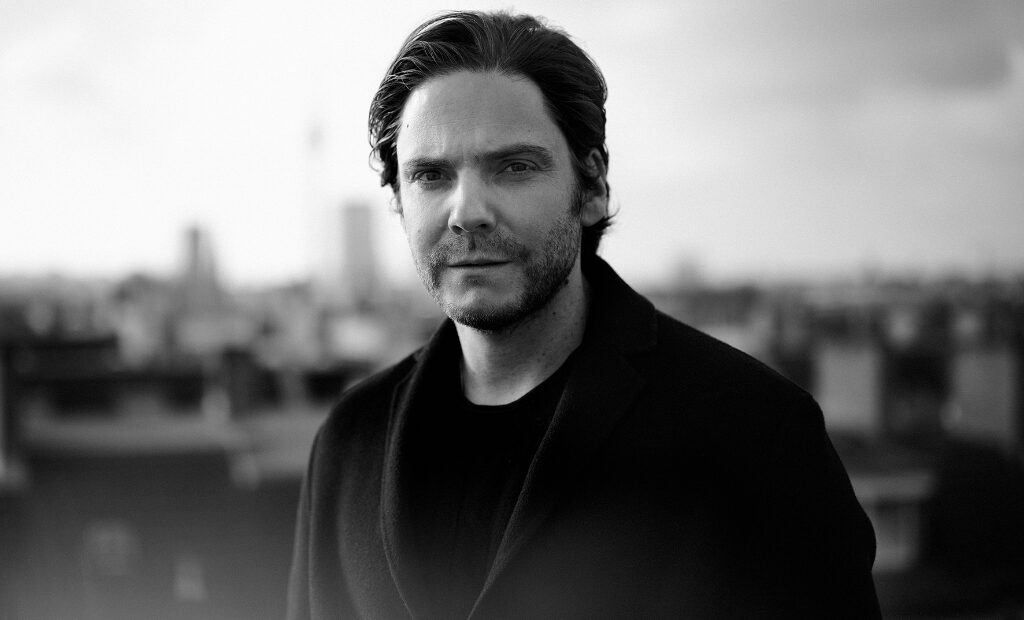
Daniel Brühl is one of Germany’s most versatile and most acclaimed actors. Thanks to Hollywood productions like Quentin Tarantino’s Inglorious Basterds, or Rush – wherein Brühl’s portrayal of Austrian F1 driver Niki Lauda earned him a Golden Globe nomination – the multilingual talent has also become an international household name.
Next Door (Nebenan) is Brühl’s directorial debut and promptly earned him a spot in the 2021 Berlinale Competition. In a Prenzlauer Berg dive bar, actor Daniel (played by Brühl) is approached by an inconspicuous East German who reveals himself as Daniel’s next-door neighbour, with an unobstructed view into his seemingly perfect life. From a not-quite neighbouring district of Berlin, we spoke to the filmmaker via Zoom.
How did Next Door come into being?
Daniel Brühl: The idea was originally born in Spain. I was in a tapas restaurant when I felt stared at by a construction worker. Suddenly I imagined him as a scaffolder working on the façade of my house, observing my apartment for a couple of months and then waiting for me at this restaurant to open a conversation and start a duel.
From the beginning I knew I wanted to tell a story taking place in a restaurant, with two people who couldn’t be more different from each other, from different social classes. Gentrification was a starting point and one of the fundamental themes that I wanted to talk about.
Was it originally meant to be shot in Spain?
DB: I couldn’t do the film then, mainly because I cannot write and because I couldn’t put it together in Spain. Then some years later within Prenzlauer Berg, here in East of Berlin, I moved from one apartment to another and – what you can’t see right now – opposite me there is a typical Berlin backyard situation going on: all these rear view windows, where you are very close to your neighbours. And then I thought, actually, that is much more interesting and more relevant to me, because this is where I spend most of my time: in Berlin and not in Spain.
So it turned into the idea of a Berlin film, a Prenzlauer Berg film. The problem remained that I couldn’t write it. Eventually I approached Daniel Kehlmann, who is one of our most prestigious and best writers. I knew with him being half Austrian and having that dark sense of humour as well as a theatre background, the idea of a chamber play could be potentially of interest to him. He engaged immediately and was very enthusiastic. After a couple of weeks, he had written a wonderful first draft and then the whole thing took off.
Was the production affected by the lockdown in March 2020?
DB: It was pretty handy to have had this specific idea during the pandemic because thanks to the chamber play concept we were able to shoot it. In fact, the pandemic broke out the very same week we started rehearsing. Because it was a chamber play from the beginning, we didn’t have to change anything to resume shooting. We were one of the first films, if not the first film in Germany to continue production. We had to get used to everyone having to wear a mask and we all had to get tested a couple of times a week but thankfully, we could shoot the whole film without any major issues.
Next Door is your first project as a director. Was it always a dream of yours to direct or did you want to be the one to tell this story because it was your idea?
DB: I wanted to direct for a long time, even before I had this idea. But I always had in mind the advice of directors that I’ve worked with: that if I wanted to direct, I had to know exactly what I was talking about and what I wanted to tell. So I knew that I had to find a very personal idea that mattered to me. I didn’t want to lift a weight that was too heavy and do something that didn’t have anything to do with me.
So thank God this little idea came to my mind and I could convince very talented people like Kehlmann and Peter Kurth, the actor that I always had in mind for this, who all came on board very quickly. It was magical; I didn’t get a “no” from anyone. Another advice I was given was to choose my surrounding key co-workers very wisely. This is also part of directing: not only casting actors but the crew around you. That was crucial because I needed so much help, it being the first time.
It was nice to be able to, as you say in German, “drop the pants” and be very honest. When the DOP was talking to the electricians, I maybe understood half of it. I didn’t have a clue about many technical terms, but everyone treated me with a lot of respect, even though I was a greenhorn.
At the beginning of Next Door, your character is quite nervous about an impending audition. Do you remember the most stressful casting call in your career?
DB: There were many. I am a disaster in casting and always hope that there is a chance to meet the directors before, so that I can somehow convince them with other means. Because as I say [in Next Door], 50% of me in an audition is not a lot.
I remember that when Tarantino came to Berlin, I was one of the few that he wanted to meet for dinner and a glass of wine the night before the audition. It turned into a long night and it was wonderful because we were talking about movies and I really had the impression that he liked me. I was sure that eventually he would say, “You know what: let’s skip the audition, you have the part” but instead he said, “Well, see you tomorrow morning, 9 o’clock.”
And it wasn’t good. The script only existed in English and I knew eventually they would shoot it in French and in German. Especially for this flirtatious scene with Shosanna in the beginning, it would help if it was in French. He said “well, unfortunately we don’t have it in French” and I said, “No problem, I’m gonna translate it right away” which was a bit of a show, because I know French but not that well. So every word I didn’t know in French I would say in Spanish, thinking the Americans won’t know the difference, and so in this weird French-Spanish I played the scene. It felt much better and then eventually he said, “Well, yeah, you got the part.”
There are quite a lot of similarities between your character, Daniel, and yourself.
DB: Yeah, that was deliberately the game I wanted to play to confuse the audience, using very personal elements. But it was never my intention to do a self-indulgent autobiographical tale about me and I hope that people realise the way I come across in this film is not particularly pleasant. I wanted to set the tone right at the beginning, by heightening and exaggerating, that this guy is slightly pathetic. Yes, he could have been an architect from Düsseldorf or a politician from Hamburg or a Hip-Hop star from Stuttgart, but I knew it would only work if I use my persona and my profession, because it is easy to attack. It stands for something and it helped me to find a nice guideline to tell this story in an entertaining way by being so supposedly personal.
My wife is a psychologist. When she watched the film for the first time she said she couldn’t stand this guy. She was repulsed by this man.
What did you want to skewer in particular?
DB: What I have experienced in my professional world, increasingly so due to social media, Instagram, is this longing for perfection and for filtering the world. Having this perfect life to show to people.
I liked the idea of what would happen if you meet someone that you don’t know, but who knows you? Someone, who manages to destroy your life and then nothing is left of that cocky and vain, seemingly perfect life.
Have you ever had experience with stalking in your life?
DB: Yes, I had stalkers, but that was a long time ago, when I was young. I had to contact the police in Hannover because it became creepy. Two teenage sisters, I never found out if it was really two or just one.
And there are a couple of people that I meet every now and again in the streets of Berlin, who clearly dislike me. You get used to it. I always thought this is the price to pay if you’re doing what I do. I am so privileged in my life to be able to do what I love professionally. In 80-90% of the cases you get nice feedback and ultimately that is what you’re doing it for.
There is a wonderful quote by an American star – I don’t remember who it was who said, “Yeah, we actors are always annoyed if we are recognised. But we are even more annoyed if we’re not recognised any more.” And that is very true.
So yeah, if people talk to you, it shows that you’re still there. The fact that I am talking to you guys now is wonderful because after 20 years I am still around and I could even direct my first movie.
So this is something to be thankful for. I haven’t met a Bruno in my life, for real. Thank God.
Selina Sondermann
Photo: Pascal Buenning
Next Door (Nebenan) does not have a UK release date yet.
Read our review of Next Door (Nebenan) here.
Read more reviews from our Berlin Film Festival 2021 coverage here.
For further information about the event visit the Berlin Film Festival website here.
Watch a clip from Next Door (Nebenan) here:











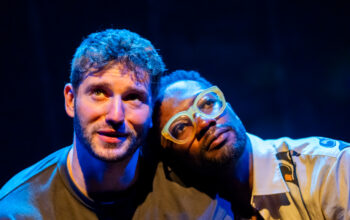
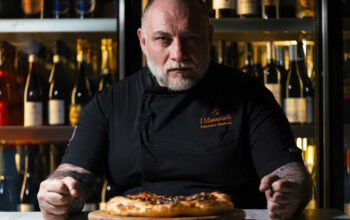
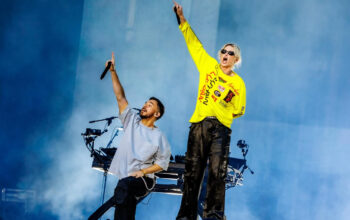
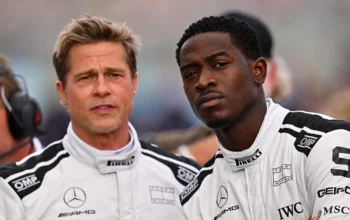
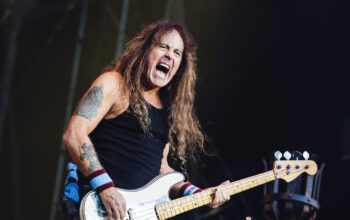
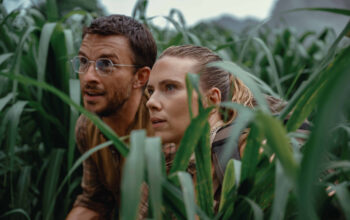



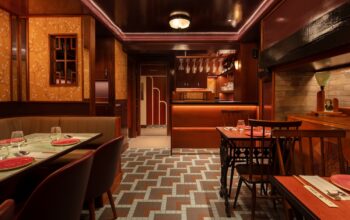





Facebook
Twitter
Instagram
YouTube
RSS